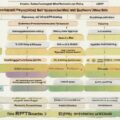In today’s hectic world, many of us feel overwhelmed by the constant demands of work, family, and other obligations. Achieving work-life balance seems like an impossible task. Yet there is a way to find simplicity, contentment and meaning amidst the chaos – by cultivating the mindset and lifestyle of a ‘simple person’.
What Does it Mean to be a Simple Person?
A simple person is someone who consciously chooses to live life by the essentials. They focus on core values like faith, family, community, health and purposeful work. Simple people pare down on material possessions, instead finding joy in experiences, relationships and service to others.
Characteristics of a Simple Person
- Values people over possessions
- Finds contentment in simplicity
- Focuses on being rather than having
- Savors life’s simple pleasures
- Practices gratitude and generosity
- Seeks personal growth and purpose
Benefits of Simplicity
Living simply lightens your load mentally, emotionally and even physically. It brings freedom from the burden of clutter, busyness and expectations. Science confirms that experiences bring more lasting happiness than material goods. Other benefits include:
- Less stress
- More time for what matters
- Financial savings
- A smaller environmental footprint
- Stronger connections with people
How to Cultivate a Simpler Life
The simple life is more of a journey than a destination. But by adopting the below habits, you can begin walking the path of purposeful simplicity.
- Set your priorities. What matters most? Let your time, energy and spending flow towards those people and passions.
- Clear the clutter. Physical, mental or emotional – our environment affects our inner state. Declutter to increase calm and clarity.
- Say no. It’s impossible to do everything well. Learn to politely decline so you can focus where it counts.
- Buy less, experience more. Memories over materials bring deeper fulfillment.
- Savor the moment. Instead of rushing through tasks to cross them off, be fully present and appreciate the experience.
Finding Community Support
Exploring simplicity can feel countercultural. Having like-minded community provides encouragement and inspiration to stay the course. Consider joining an online or local simple living group.
Simple Living, Simple Joy
The simple life frees us to focus on joy – joy we find in rest, nature, people and purpose. By clearing away the complex, we rediscover the profound happiness found in simple things.
Frequently Asked Questions
What are some signs that my life has become too complicated?
Signs your life may be too complicated include feeling chronically stressed or hurried, having cluttered living spaces, overspending or going into debt, lacking time for relationships and self-care, and struggling to focus at work or stay organized. If things feel chaotic too often, it’s time to simplify.
Will living simply mean I need to give up my career goals and ambitions?
Not necessarily. Simplicity is about focusing your limited time and energy on only your highest priorities. So if career success aligns with your core values and purpose, by all means continue pursuing your ambitions. Just be sure to balance that with the other vital areas of health, relationships, rest and personal growth.
How can I cut expenses without depriving my family?
Look for creative ways to enjoy free or low-cost entertainment like hiking, camping, potlucks with friends, movie nights at home, game nights and checking out books from the library. When you do spend, choose experiences over things whenever possible. And involve kids in brainstorming fun free activities too.
Won’t I get bored if I try to live more simply?
Actually, many people report feeling less bored after embracing simplicity. The abundance of entertainment and consumption options today often creates distraction and restlessness more than fulfillment or fun. Living simply helps strip away the excess noise so you can focus on activities and relationships that bring true, lasting enjoyment.
What if my spouse or family members don’t want to simplify as much as I do?
Move towards simplicity at your own pace, and let your journey inspire rather than pressure others. Demonstrate how paring down possessions, activities or spending can increase happiness. But also compromise when needed so relationships don’t suffer. With time and positive modeling, loved ones may come to appreciate the benefits of simple living too.









